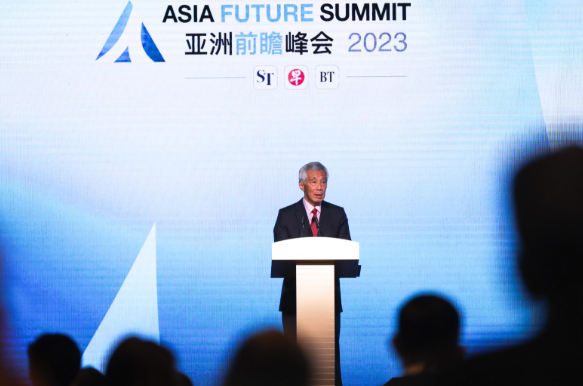Navigating Regional Tensions and Nationalism for Asia’s Future Prosperity
During the Asia Future Summit on October 5, 2023, Singapore’s Prime Minister Lee Hsien Loong emphasized the need for Asian nations to maintain good bilateral relations, even in the face of contentious issues such as territorial disputes. He urged countries to insulate overall relations from these points of tension, which could potentially disrupt cooperation within the region.
Prime Minister Lee highlighted Asia’s immense promise, driven by favorable demographics and the economic growth of major powers like China and India, alongside the emergence of Southeast Asia. However, he identified three critical challenges threatening regional stability: increasing geopolitical contestation, contentious issues like competing maritime claims, and rising nationalism and protectionism within the region.
A key point of concern is the escalating tensions between the United States and China, which Lee described as “the most consequential relationship in the world.” Both powers view each other as adversaries, leading to a climate of mutual distrust. However, Lee expressed hope that neither country desires conflict, though both remain reluctant to make significant compromises. This dynamic, Lee noted, creates a delicate balancing act for smaller Asian countries, which must maintain stable, constructive relations with both powers to minimize regional tensions.
Additionally, Prime Minister Lee addressed the importance of Asia’s diplomatic efforts, including maintaining a consistent and pragmatic approach to the One China policy, which should not be reduced to a simplistic ideological battle of democracy versus autocracy.
Regarding climate change, Lee discussed the challenges of collective action, highlighting the need for global cooperation on technological advancements, carbon trading, and infrastructure for green energy. However, he also acknowledged the complexities of emissions reductions, particularly in balancing the historical responsibilities of developed nations and the practical realities of global cooperation.
Ultimately, Prime Minister Lee called for strong statesmanship, regional economic integration, and stable domestic political environments as essential pillars for Asia to achieve long-term peace and prosperity despite the growing geopolitical uncertainties.








